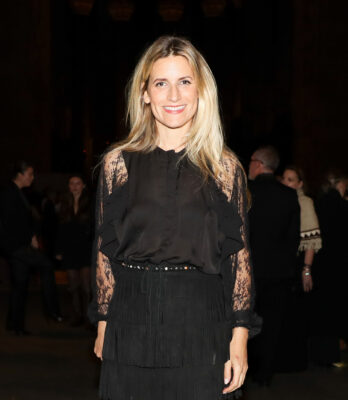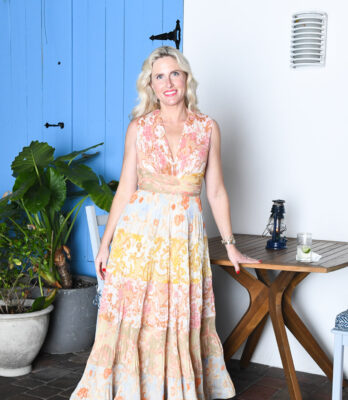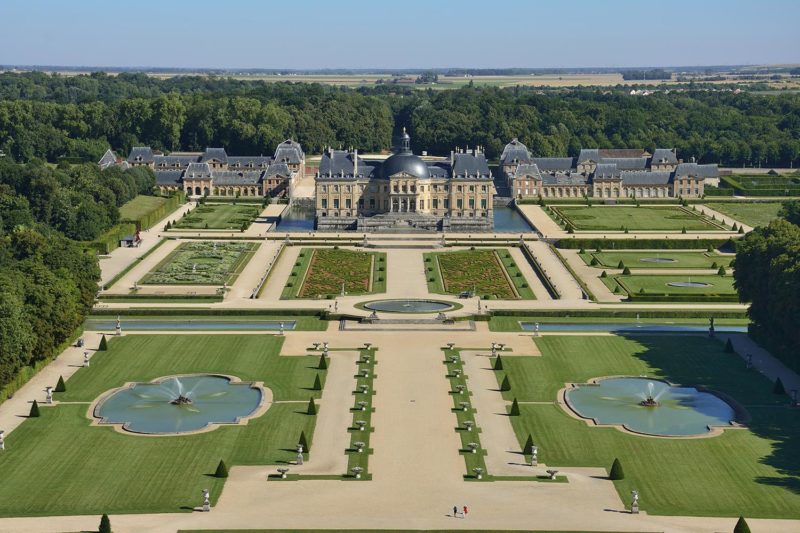
Property Porn
GOLDEN HANDCUFFS
What it’s really like to inherit a castle, according to Alexandre de Vogüé, one of the heirs of Vaux-le-Vicomte.
At a time when all eyes are on the English Royal family and the tsunami of personal problems that come from employing the practice of primogeniture (the custom of leaving all to the eldest son) there is another way to inherit and run large estates in Europe. It might take some work and even–to some–the horror that is self-examination. But at least one French family of three brothers has figured out a system for running their family Château together. Call it triogeniture.
Now admittedly, therapy is not traditionally thought of as a way to problem solve among the European aristocracy, who would, normally, rather eat live mice than discuss their feelings. The appetite for conversation and confrontation is very different from Americans’, as anyone who has ever watched an episode of The Crown will know. But when communication broke down among the three brothers who co-own Château Vaux-le-Vicomte—the 400-year-old, 100-room jewel on the outskirts of Paris—the family employed an executive coach.
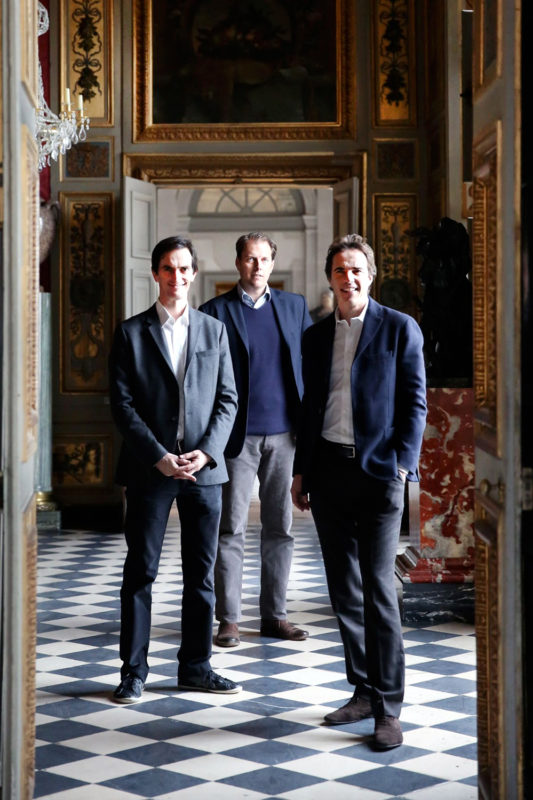
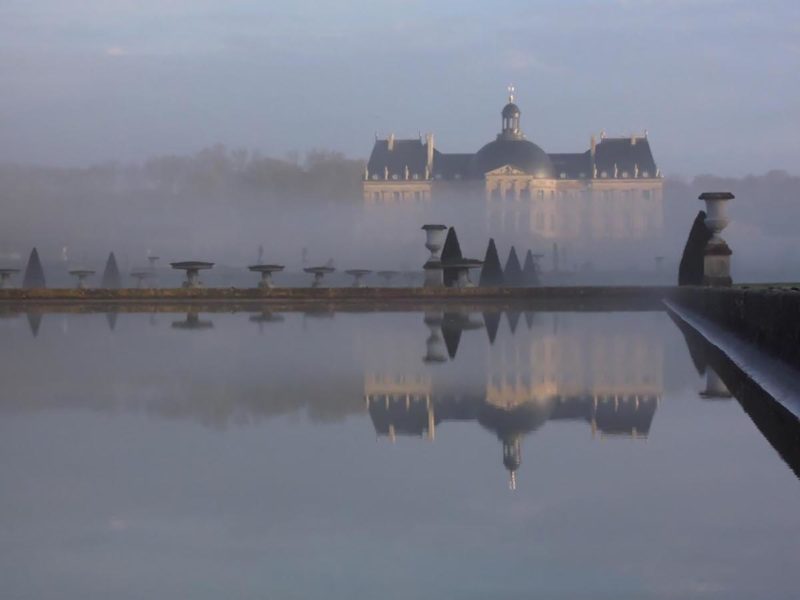
Château de Vaux-le-Vicomte has a rich and storied history. Its creator, Nicholas Fouquet, was Louis XIV’s Superintendent of Finances—the equivalent of the United States secretary of the treasury. Born rich, Fouquet vastly increased his wealth through trade and two strategic marriages. Occasionally he took a cut from money he procured for the French Crown (a very normal practice in those days). Notes Count Alexandre de Vogüé, one of the three brothers who would later inherit the grand estate: “Fouquet wanted to create the most-beautiful house ever and to show it to his people, to the court, and the King.” Not coincidentally, Fouquet also wanted to wow with his wealth and stature.
Indeed, Vaux-le-Vicomte was so extraordinary, with its harmony between architecture and gardens and lavishly decorated interiors, that Louis XIV hired Fouquet’s team (architect Louis le Vau, landscaper André Le Nôtre, and decorator Charles le Brun) to work on Versailles. “The king learned from Fouquet that art could be a fantastic tool of propaganda,” Alexandre adds.
Unfortunately, the lesson was learned a little too well. A jealous courtier, Jean-Baptiste Colbert, led the king to believe the castle was built with misappropriated funds. Louis XIV took action: In September 1661, three weeks after attending an infamously extravagant party hosted by Fouquet—where guests were treated to a new play by Molière, a nautical ballet on the moat, and incredible fireworks, among other over-the-top delights—the king had his host arrested and sentenced to life in prison.
Vaux-le-Vicomte, however, survived. And while the king had helped himself to a slew of its treasures, many were returned to Madame Fouquet, and much of the contents have made it through the centuries until today. Vaux has changed owners only three times during its history. In 1875, Alfred Sommier, an industrialist, bought it. Today, the château is administered equally by his great-grandchildren, the sons of Count and Countess de Vogüé: Twins Alexandre and Jean-Charles, 54, and Ascanio, 53.
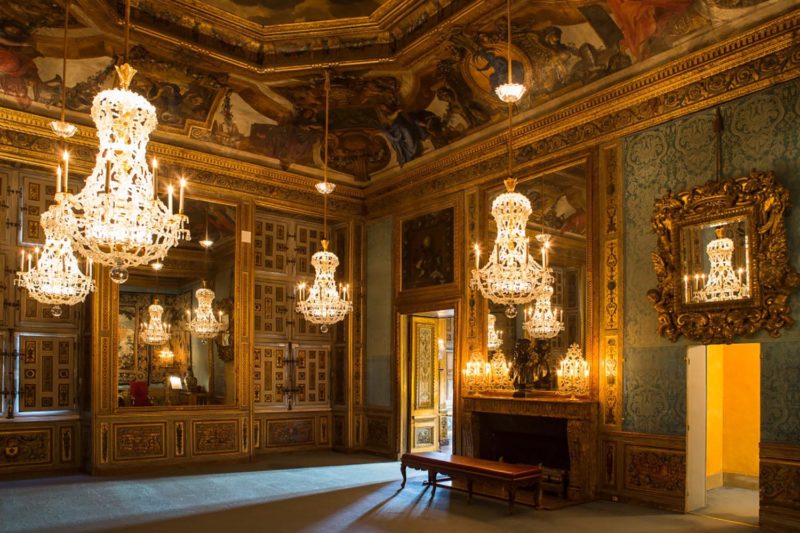
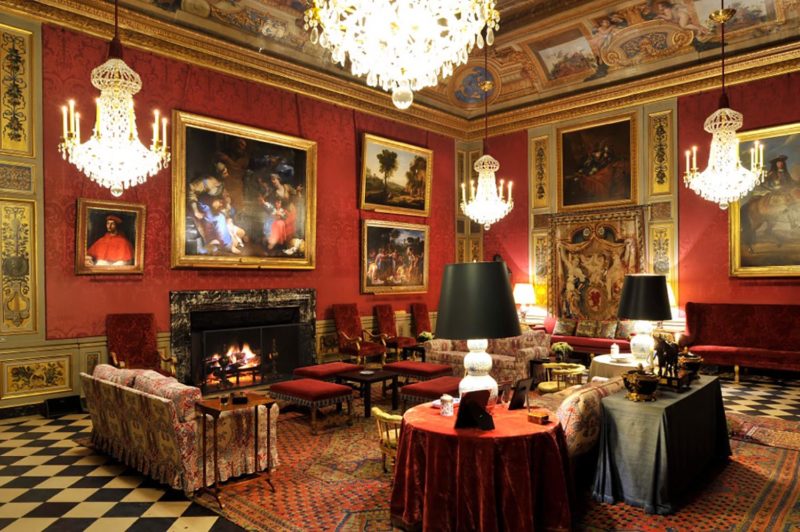
Running a 400-year-old palace in desperate need of restoration is a full-time job—for all of them. Alexandre’s mother called Vaux “a golden prison”—in part because Alexandre’s father was in thrall to it. “It was his baby, his mistress, his favorite toy.” Alexandre and his brothers didn’t want to be quite so attached to the place. “It’s a job and a passionate mission but we have a life apart from the Château.”
Alexandre, 54, who leads the family’s fundraising efforts, explains: “The yearly operating budget for Vaux is €8.5 million. €1 to €1.5 million goes into restoration, and the estate needs more. We have 300,000 visitors who pay €15 per ticket to see it and the French government gives us a subsidy of 5% towards the budget. But even with that, we are always trying to find ways to drive revenue.”
In order to retain their stipend from the French Government, Vaux had to become a non-profit, meaning that the brothers can take a salary but they can’t sell it. But they can offer tax deductions to donors, so Alexandre is on the road a lot, talking up the wonders of his family legacy and enticing legions of Francophiles to make a worthwhile visit.
Being the family historian wasn’t exactly what Alexandre had in mind during his youth. He wanted to create his own path. Instead of following most of his Parisian friends into jobs in banking, he followed a childhood dream and ended up a mountain guide in the ski resort of Chamonix for 10 years. His closest friends were shopkeepers and ski guides.
Living outside of the circle of privilege he’d been brought up in was formative. “When you live in Paris and you live the life I’d lived, I realized that people of a certain level have absolutely no idea of what real life outside Paris and outside a certain level of wealth is like. Absolutely no idea. And I think that one of the reasons we have so many problems in society is that we are governed by people who have no idea about normal life.”
After a decade years on the mountain, Alexandre had a big scare: he broke his leg skiing when a storm came on unexpectedly. He was lucky to make it out alive. He decided it was time to return to his family’s world.
Along the way he met his wife, Jot, a film editor born in India and raised in London. They met at a private party when she was working for James Ivory (of Merchant/Ivory) on Jefferson in Paris, and have been married 17 years.
After his time away, Alexandre came back to the family “firm,” learning all he needed to know about how to preserve and run this extraordinary property and how to work effectively with his family. It was not always a smooth path.

Troubles began with the employment of a younger brother in 2015, petty misunderstandings that had festered for years bubbled to the surface. Communication between brothers abruptly stopped and conflicting commands sowed confusion and disarray among the staff. Tensions multiplied over the year, and there were such conflicting points of view, that two members of the Board called an all-hands-meeting. They told the brothers if they continued like this it would be the end of Vaux-le-Vicomte.
Luckily, help was at hand. Ascanio’s wife, Charlotte, had just given up her law practice to become an executive coach. She introduced them to one of her colleagues and they agreed to give it a go.
Their central question: “What is our common vision for Vaux?” But it soon became clear after the first meeting that there were deeper issues to sort out. “It was hard,” says Alexandre, “Because you have to talk deeply and sincerely about things you haven’t wanted to talk about for many, many years. So you swallow one or two times, and then you have to say what you think. It’s not a comfortable or enjoyable session. We realized that what was important was not our silly fights but Vaux-le-Vicomte, a 400-year-old masterpiece.”
Over a period of nine months, the brothers met a number of times and ultimately, the sessions were a success. And the executive coach was the heroine of the day. “Julie basically saved Vaux-le-Vicomte. Because she just taught us how to discuss with each other, how to hear and listen to each other, respect each other, and build up—and organize—some professional, efficient meetings. And we still use her advice today.”
Napoleonic Law dictates that, unlike the English system, estates must be equally divided between heirs. So in order to keep the family concern going, consensus needs to be reached. The de Vogüé brothers are more like stakeholders in an event-and-museum business or members of a co-op board than mere aristocratic owners of an ancient and vaunted property.
But they have wholeheartedly embraced a new way of thinking. There is even a plan in place for all eight of Alexandre’s nieces and nephews. “We are working on a familial chart, a document which puts in some rules regarding how to use Vaux-le-Vicomte, how to be involved professionally, etc.,” says Alexandre. “That’s the first step. We will organize seminars with the kids at Vaux. They will be introduced little by little to what Vaux is about. We will not put any pressure on them whatsoever but we want to give them the knowledge and possibility to have contact with Vaux-le-Vicomte from today.”
Theirs is perhaps the lesson necessary to the survival of all great estates—this sense of connection between the smallness of Self and the greatness of History. In this case, the message for the next generation is clear: Vaux-le-Vicomte, c’est moi.
